QuestionMy male cat who is about 9 months old was just neutered on 2/22/07 and started sneezing continuously yesterday 2/27/07. I took him to the spca to have this procedure done and have his vaccines updated. He tested negative to all tests and he was given a good bill of health. Could his sneezing be related to the surgery or could he have contracted something there? Although my cat is strictly indoors, I fear that because I took him to the shelter to be neutered maybe he caught something there.. Please tell me what you think of this.
Thanks
AnswerI think you're onto something. A cat going to a groomer's, a shelter or a vet's office is like a child going to kindergarten. There are just germs in the air, and catching something is a good possibility. When you add in the stress of the neuter on his body, you can see why it's pretty easy for a virus to take hold of him.
Fortunately, the most common highly contagious upper respiratory viruses are corona viruses, and they're relatively mild. Some sneezing, some clear eye discharge, and they're gone in 7-10 days. This is sort of the equivalent of the human common cold.
However, unfortunately, very serious upper respiratory infections can also be airborne through sneezing. The two most serious are the feline herpes virus and feline calici virus. He would have been vaccinated against these at the shelter, but the vaccines only lessen symptoms when the cat DOES catch the viruses, it doesn't prevent the cat from contracting the viruses in the first place.
Feline herpes causes sneezing and thick nasal and/or eye discharge, red, swollen eyelids, and often, horrible breath. You need a vet to look at a kitty with these symptoms. Bacterial infections usually come along with herpes, and those need antibiotics to cure.
The calici virus causes sneezing fits and/or clear eye discharge and fishy breath. The dangerous part about this one is that it causes ulcers in the mouth, throat and lungs. A cat with serious mouth sores like this is generally not going to eat, possibly for weeks. And the sores in the lungs make pneumonia a common secondary problem. Calici patients, too, should be on antibiotics to prevent pneumonia and other bacterial infections. Check his mouth for sores on the tongue and the roof of the mouth. If you see red sores, calici is probably to blame. Cats with calici sometimes need extra supportive care, such as force feeding, fluids under the skin, and a medicine called sucralfate that may help the sores heal more quickly and relieve some pain.
If it's just a sneeze at this point with no other symptoms, I'd see how it goes for another few days. If he loses appetite or develops thick nasal or eye discharge or you see mouth sores or notice foul breath odor, then he should see a vet right away for treatment.

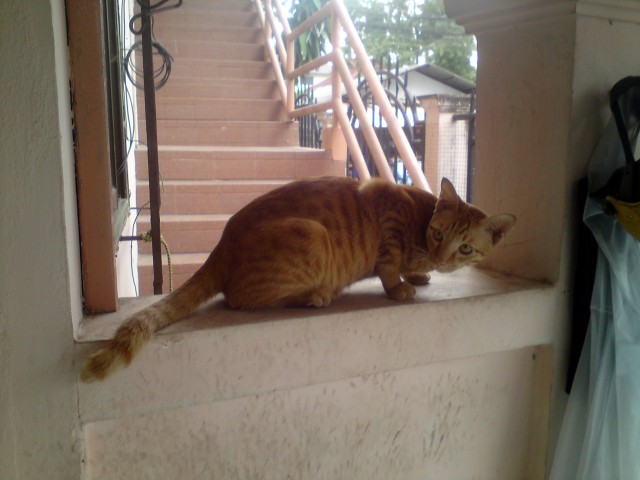 Ocicat
Question
Sesame
My daughter is currently living in Thai
Ocicat
Question
Sesame
My daughter is currently living in Thai
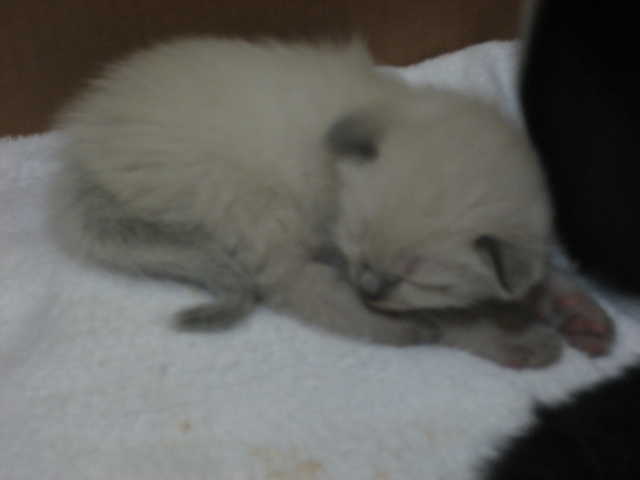 is my kitten a blue point?
QuestionPolar bear
QUESTION: hi, our black and w
is my kitten a blue point?
QuestionPolar bear
QUESTION: hi, our black and w
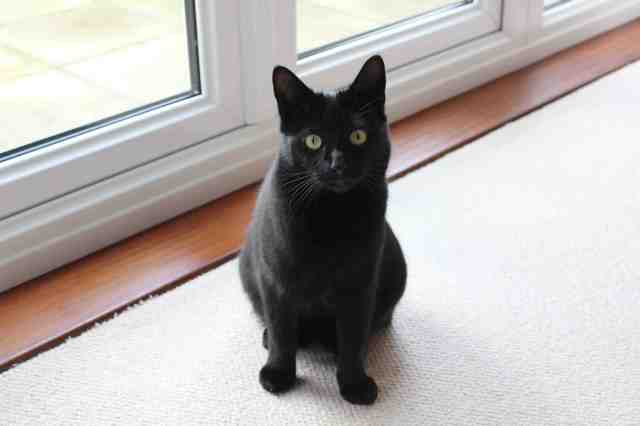 My cats gone missing
Question
Tommy
Hi Jessica,
I do hope that you c
My cats gone missing
Question
Tommy
Hi Jessica,
I do hope that you c
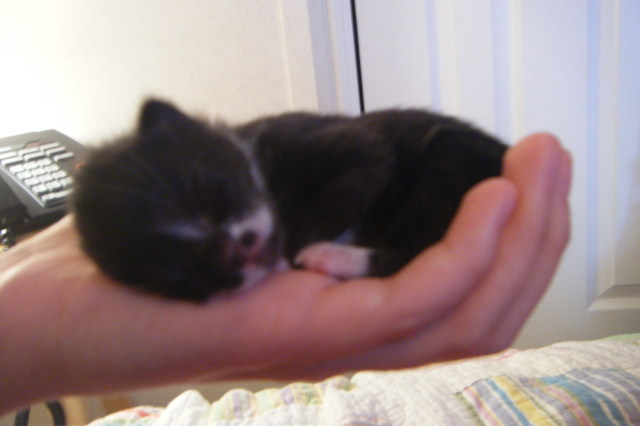 I think my kittens got into our horses oats (with seed hulls)
Question
Our newborn baby :)
Hi there,
My kittens are
I think my kittens got into our horses oats (with seed hulls)
Question
Our newborn baby :)
Hi there,
My kittens are
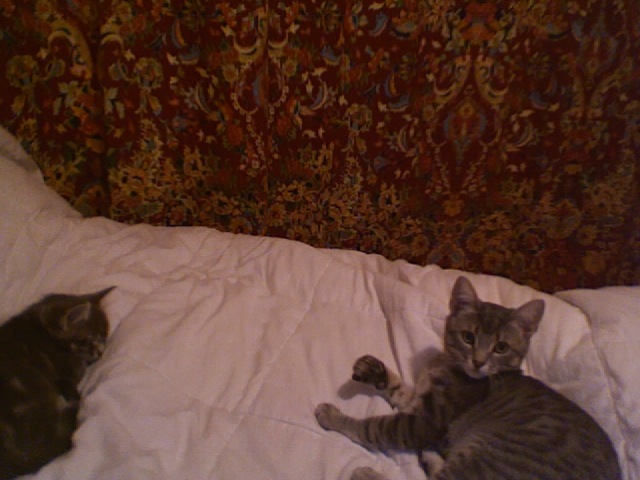 Kitten introduction
Question
the brothers
I recently (yesterday) int
Kitten introduction
Question
the brothers
I recently (yesterday) int